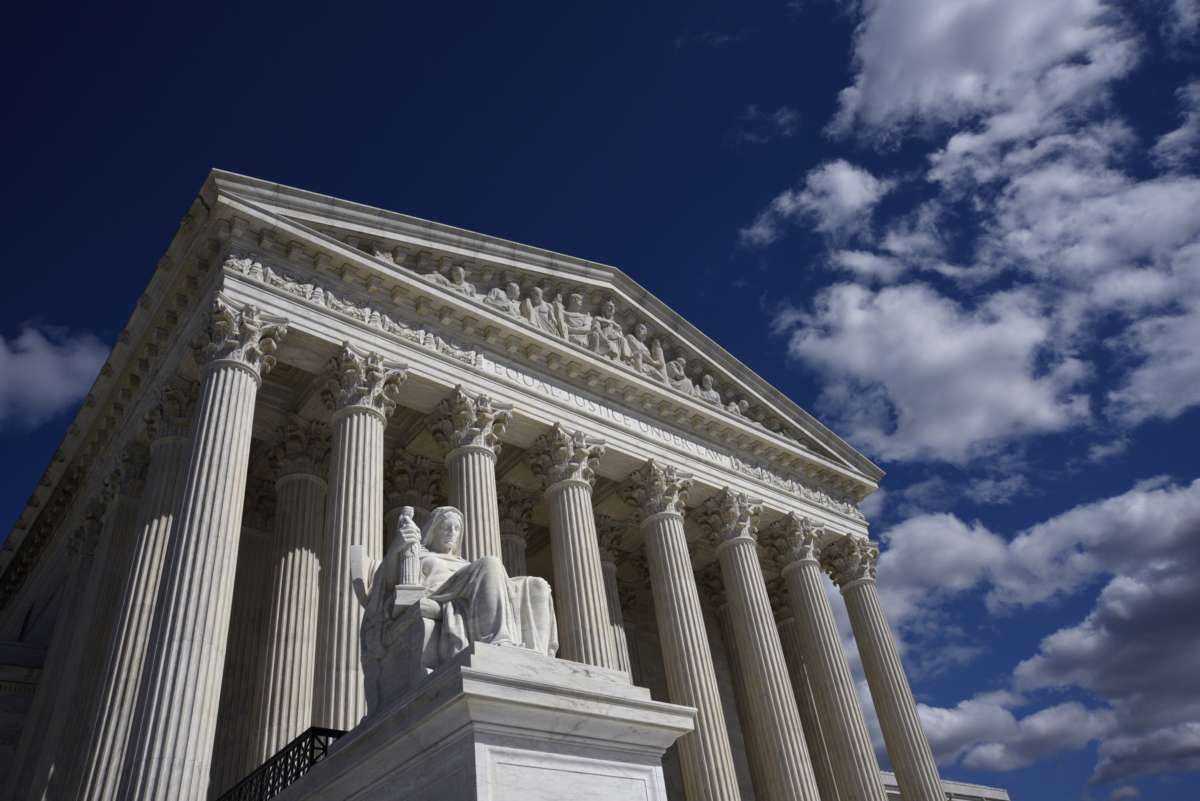Update: Two members of the conservative bloc of justices who originally sided with a majority order issued by the Supreme Court in September, allowing a restrictive Texas abortion law to remain in place, suggested in arguments heard on Monday that they were now skeptical over the law.
Justices Brett Kavanaugh and Amy Coney Barrett have insinuated that their opinions on the statute may have shifted. Two months ago, they joined with Justices Clarence Thomas, Neil Gorsuch and Samuel Alito in allowing the law to stand without granting a stay to its implementation. However, the justices recently asked lawyers questions that hinted at the possible endorsement of the belief that abortion providers had a right to sue Texas directly over the law’s design.
Kavanaugh worried that the strategic design of the law, which places the onus of enforcement on individuals rather than the state by incentivizing private citizens to sue those who help others obtain an abortion, could be used to block other constitutional rights, such as the Second Amendment right to gun ownership. Barrett, meanwhile, expressed concern over whether the law was crafted in a way that would prevent a “full constitutional defense” of protections already conferred on people seeking an abortion within state courts.
“I’m wondering if, in the defensive posture in state court, the constitutional defense can be fully aired,” she said.
No ruling has been issued on the matter as of yet, and it’s not guaranteed that Barrett or Kavanaugh will join with three liberal bloc justices and Chief Justice John Roberts in placing an enjoinment on the law while it’s settled in lower courts.
The original article appears below.
On Monday, the United States Supreme Court will hear arguments in the cases challenging Texas’s repressive abortion law, which effectively bans abortions after six weeks of pregnancy.
The Court, which granted expedited review of the law in late October, will hear two cases relating to the statute, examining whether the federal Department of Justice (DOJ) and/or abortion providers in Texas have legal standing to challenge the law.
The law, which contains no exceptions for rape or incest, is uniquely cruel in that it places the onus of enforcement on private individuals rather the state, incentivizing individuals to sue abortion providers or anyone who helps a person access an abortion for sums of up to $10,000. Because of this strategic framework, the conservative bloc majority of the Supreme Court refused to place a hold on the law’s implementation in a 5-4 decision in September.
Justice Sonia Sotomayor, one of the four justices dissenting with the order, described the Court’s decision to enable enforcement of the law as “stunning.”
“Presented with an application to enjoin a flagrantly unconstitutional law engineered to prohibit women from exercising their constitutional rights and evade judicial scrutiny, a majority of Justices have opted to bury their heads in the sand,” she wrote.
Texas is planning to continue asserting that neither abortion providers suing the state or the DOJ have standing to challenge the law — a dubious claim considering that abortion providers are directly targeted by the law, facing lawsuits from individuals who allege that they helped someone procure an abortion. The Justice Department, meanwhile, is invested in continuing the precedent protecting abortion rights set in past cases.
Texas’s abortion law “is clearly unconstitutional under longstanding Supreme Court precedent,” Attorney General Merrick Garland said in September. “The United States has the authority and responsibility to ensure that no state can deprive individuals of their constitutional rights through a legislative scheme specifically designed to prevent the vindication of those rights.”
The Center for Reproductive Rights, which filed the lawsuit against Texas on behalf of providers in the state, condemned the law for impeding a person’s right to undergo a safe and routine medical procedure.
“Here, [where] a state enacts a blatantly unconstitutional statute, assigns enforcement authority to everyone in the world, and weaponizes the state judiciary to obstruct those courts’ ability to protect constitutional rights, the federal courts must be available to provide relief,” the organization said.
Media that fights fascism
Truthout is funded almost entirely by readers — that’s why we can speak truth to power and cut against the mainstream narrative. But independent journalists at Truthout face mounting political repression under Trump.
We rely on your support to survive McCarthyist censorship. Please make a tax-deductible one-time or monthly donation.
